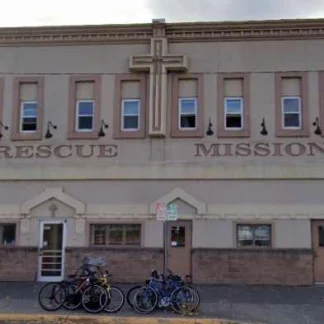Opening Doors
Opening Doors is a counseling clinic located in Great Falls, MT. Opening Doors s...
Great Falls Rescue Mission - Hope for Men offers help men that are struggling with substance abuse, mental illness or gambling problems, every man is provided with help finding a job, seeking housing, spiritual counsel and life skills classes. Great Falls Rescue Mission - Hope for Men is a non-profit rehab located in Great Falls, MT.
To offer a residential living program which is aimed at transforming the whole person by addressing present life circumstances while preparing participants to live a fulfilling and godly life. They are committed to transforming the hungry, hurting and homeless through Jesus Christ’s love.
The core program will require a commitment of at least 64 weeks. This time is spent in Bible classes, biblical counseling, and ministry assignment as well as acquiring life skills. The transitional phase of the program will begin at week 64. At this stage, participants either transition into Phase 5 and look for employment or into our Disciple Leadership Program, which may last up to two years.
Contact us for more information: (406) 761-0095

Connect with Great Falls Rescue Mission - Hope for Men by calling their admissions team directly.
(406) 761-0095 Website Get DirectionsGroup therapy is any therapeutic work that happens in a group (not one-on-one). There are a number of different group therapy modalities, including support groups, experiential therapy, psycho-education, and more. Group therapy involves treatment as well as processing interaction between group members.
In individual therapy, a patient meets one-on-one with a trained psychologist or counselor. Therapy is a pivotal part of effective substance abuse treatment, as it often covers root causes of addiction, including challenges faced by the patient in their social, family, and work/school life.
Life skills trainings involve all the skills a person must have in order to function successfully in the world. These include time management, career guidance, money management, and effective communication. Truly successful addiction recovery is based on the ability to not only live substance-free, but to thrive. Life skills teaches the practical necessities of functioning in society, which sets clients up for success in life, and therefore sobriety.
In individual therapy, a patient meets one-on-one with a trained psychologist or counselor. Therapy is a pivotal part of effective substance abuse treatment, as it often covers root causes of addiction, including challenges faced by the patient in their social, family, and work/school life.
Life skills trainings involve all the skills a person must have in order to function successfully in the world. These include time management, career guidance, money management, and effective communication. Truly successful addiction recovery is based on the ability to not only live substance-free, but to thrive. Life skills teaches the practical necessities of functioning in society, which sets clients up for success in life, and therefore sobriety.
Life skills trainings involve all the skills a person must have in order to function successfully in the world. These include time management, career guidance, money management, and effective communication. Truly successful addiction recovery is based on the ability to not only live substance-free, but to thrive. Life skills teaches the practical necessities of functioning in society, which sets clients up for success in life, and therefore sobriety.
Opening Doors is a counseling clinic located in Great Falls, MT. Opening Doors s...
Gateway Community Services is located in Great Falls, Montana. Gateway Community...
Breedlove Micki Marion is a private rehab located in Great Falls, Montana. Breed...
Indian Family Health Clinic is a public rehab located in Great Falls, Montana. I...